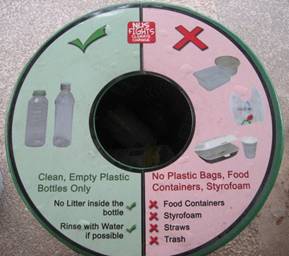Marc Gunther at the Energy Collective reports on two interesting case studies of greening company truck fleets. The first strategy was to spark friendly competition
When Chris McKenna, who manages a fleet of trucks for Poland Spring, learned that the company’s drivers were racking up as much as 1,400 hours a month of idle time, he saw an opportunity to make a difference. Running truck engines in winter kept the cabs warm — the company is based in Maine — but it cost Poland Spring money and polluted the air.
To see which of the company’s 65 drivers were racking up the most idle time, McKenna ranked them, based on data from onboard computers. “All we did was talk to them about it, and put a list up in the break room,” he told me. “Human nature, no one wants to be at the bottom of the list.” To sweeten the deal, the 10 drivers with the lowest idling time got a gift card for fuel they could use for their own cars.
The results were dramatic. Idle time dropped from 1,400 hours in February 2007 to 1000 hours in February 2008 to just 380 hours in February 2009. Depending on fuel costs, cutting idle time has saved the company thousands of dollars a year—roughly $20,000 during 2008, for example.
The second strategy was to change the default rule.
I also spoke with fleet managers at Carrier, the global manufacturing firm that’s part of United Technologies, and at health-care firm Novo Nordisk. At all three companies, dedicated fleet managers came up with simple, win-win strategies that saved their companies money and reduced GHG emissions. Carrier took unnecessary parts and tools out of its repair vans, reducing weight. At Novo Nordisk, Donna Bibbo, manager of fleet and travel, made small changes to the list of company cars made available to sales people; those who wanted an SUV or minivan could still get one, but they needed approval from a supervisor. “For the whole year, I don’t think I ordered 25 minivans,” Bibbo says. In past years, she would order 300 to 350.



